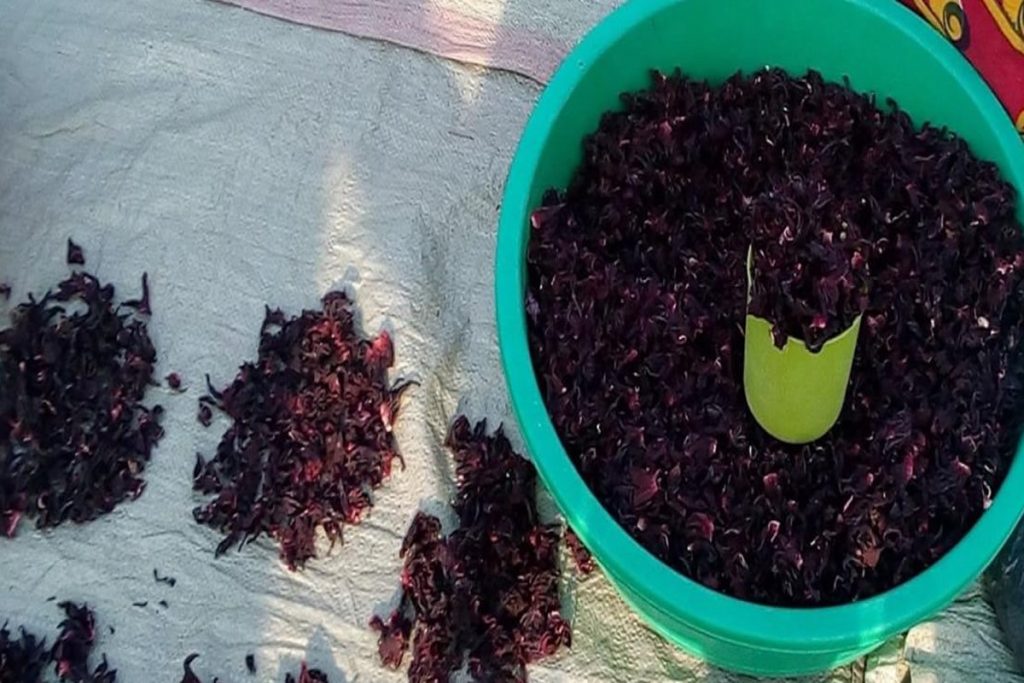Vendors in Gulu Struggle With Hibiscus Sales
2 min read
Hibiscus sellers in Gulu district are struggling to market the commodity. Hibiscus, a plant from the mallow family, with purple leaves and flowers, originally grew in the wild but it has since been domesticated the world over, including parts of Uganda.
The cured leaves and flowers, as well as the seeds of the hibiscus plant, are a highly regarded herb, because of the nutritional benefits and healing properties they possess; such as the ability to ease bloating, control high blood pressure, boost immunity, increase the blood level and treat inflammatory problems.
Jackie Adure, a businesswoman at Gulu Main Market, says she gets her hibiscus from Kampala at 10,000 Shillings a kilogram and sells at 15,000 Shillings.
However, Adure says that the sales always are very low, because few clients know it and how to consume it. She says when she buys 50 kilograms of hibiscus, it can take up to four months before it is all sold.
Adure adds that buyers also complain the price of hibiscus is very high, and see no sense in spending 15,000 Shillings on just a kilogram of one item.
Adure says she mainly gets clients from South Sudan, who buy in large quantities. To encourage local consumption, Adure says she has decided to package the hibiscus into smaller quantities ranging from 500 to 2,000 Shillings as none of the locals buys them in kilograms.
Hibiscus is popular among health-conscious people as it contains nutrients such as vitamins A, B and C, Zinc, iron, protein, copper and omega-3 fatty acids.
Rukia Baako, another vendor who sells hibiscus in Cereleno, along Gulu-Kampala highway, says her stock is mainly bought by caretakers of cancer patients, or those suffering from sickle cell anaemia. She also reveals that one of her loyal clients is a patient who says it helps him manage cancer.
Baako, who gets her hibiscus from Sudan or Congo, at 20,000 Shillings, says that since few people buy hibiscus, and she only sells in small quantities of 1,000-2,000 Shillings and does not know how much a kilogram costs.
Dried hibiscus leaves and flowers can be taken as juice by adding cold water or taken as a tea by adding boiled water. Some people add value to it and it becomes wine.
Innocent Piloya, another dealer in hibiscus, says she prefers to sell the hibiscus powder, because it is versatile, unlike the dried leaves and flowers which can only be used for juice and tea.
The powder, Piloya explains, can be added to cereal, porridge, smoothie, tea and juice.
But just like other sellers, Piloya says she gets her hibiscus from outside Gulu district in Wakiso or Mbale and also sells in small quantities.
Piloya says the production of hibiscus in Gulu is still on a very low scale, which keeps the price high because of its scarcity, and makes seller get from other districts/countries.







